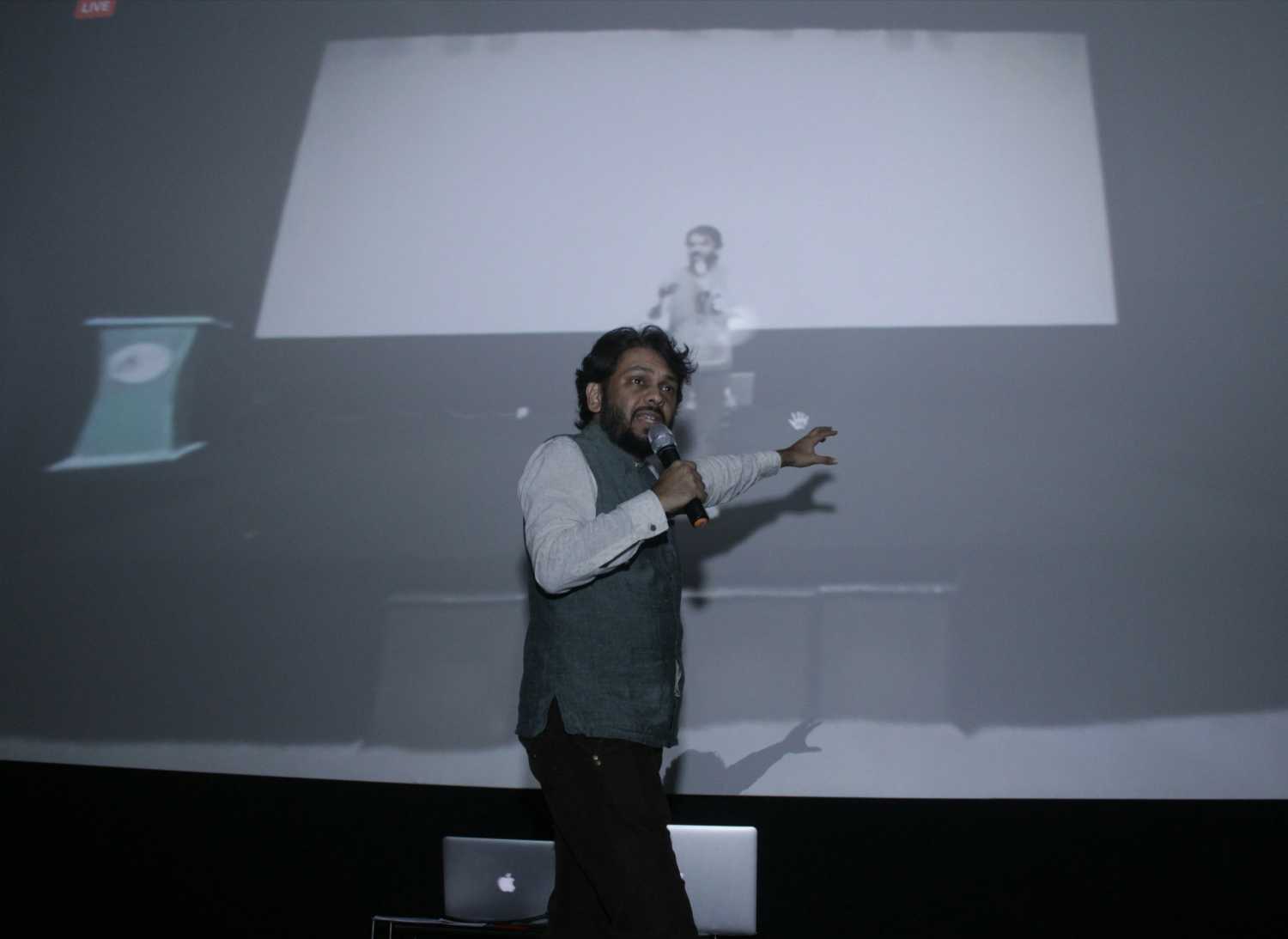The Ship Of Theseus director spoke of the possibilities of the use of VR in cinema and said filmmakers are still understanding the grammar of the medium.
IFFI 2017: VR is tool to preserve records and memories for posterity, says Anand Gandhi
Panjim - 25 Nov 2017 2:18 IST
Updated : 18:31 IST


Sukhpreet Kahlon
His feature-length film, Ship Of Theseus (2013), was acclaimed internationally and won several awards. His latest as producer, the documentary An Insignificant Man, traces the journey of Arvind Kejriwal, the formation of his Aam Aadmi Party (AAP) and its incredible victory in the Delhi assembly election in 2015.
As founder of Memesys Culture Lab, Anand Gandhi has straddled many roles and is not new to experimentation. He recently released ElseVR, a collection of original, provocative Virtual Reality (VR) documentaries and videos made entirely by Memesys, and has produced 8 VR documentaries that have been played at various international film festivals.
In a masterclass on VR on day 5 of the International Film Festival of India (IFFI), the filmmaker enthralled an enthusiastic audience by talking about stories and virtual reality. Contemplating the idea of reality and cartography, Gandhi said that as opposed to other art forms, VR allows the possibility of replicating reality with accuracy. “Each story is a Virtual Reality Experience accompanied with a piece of long-form journalism and images to create a deep and well-rounded understanding of the subject for the audience," he said.
Gandhi tried to offer audiences a glimpse into this world by showing them a 360° view of the auditorium in real time. Asking the audience to imagine various scenarios where technology allowed a gateway into myriad experiences and invoking the worlds imagined in science fiction, he said, “We are the closest now than we have ever been to teleportation and this technology already exists and allows us this whole experience.”
The filmmaker spoke of the need in societies to maintain records of knowledge and to enable progress while the function of art was to capture expression. But with technology, he said, “the tools are becoming more accurate in keeping records…. VR is a tool to preserve records and memories for posterity. It explores storytelling techniques and enriches the experiences of life. It helps compress space and time.”
“Life has been a constant optimization of what can be stored and what can be let go of,” he remarked.
Playing a documentary on floods titled Submerged, a story about Indian farmers whose fields get frequently flooded, Gandhi spoke of the agency of the viewer sharing his own experiences and problems with the fact that in a 360° video, a viewer could be drawn to possibly anything, creating trouble with narration, subtitles and, of course, focus. Elucidating, he said, “This was a steep learning curve and we are moving forward in understanding the grammar of this medium.”
Sharing some of these learnings, the filmmaker spoke of the ways in which he had learnt to guide audience attention primarily through sound, saying that though a lot of agency is given to the audience, the author does wish to offer his perspective and guide attention towards certain things.
Ironically, technology did not favour Gandhi too much during the masterclass as there was some time lag in the feed on account of breaks in internet connectivity, which was a bit of a dampener for the audience.
Related topics
IFFI



